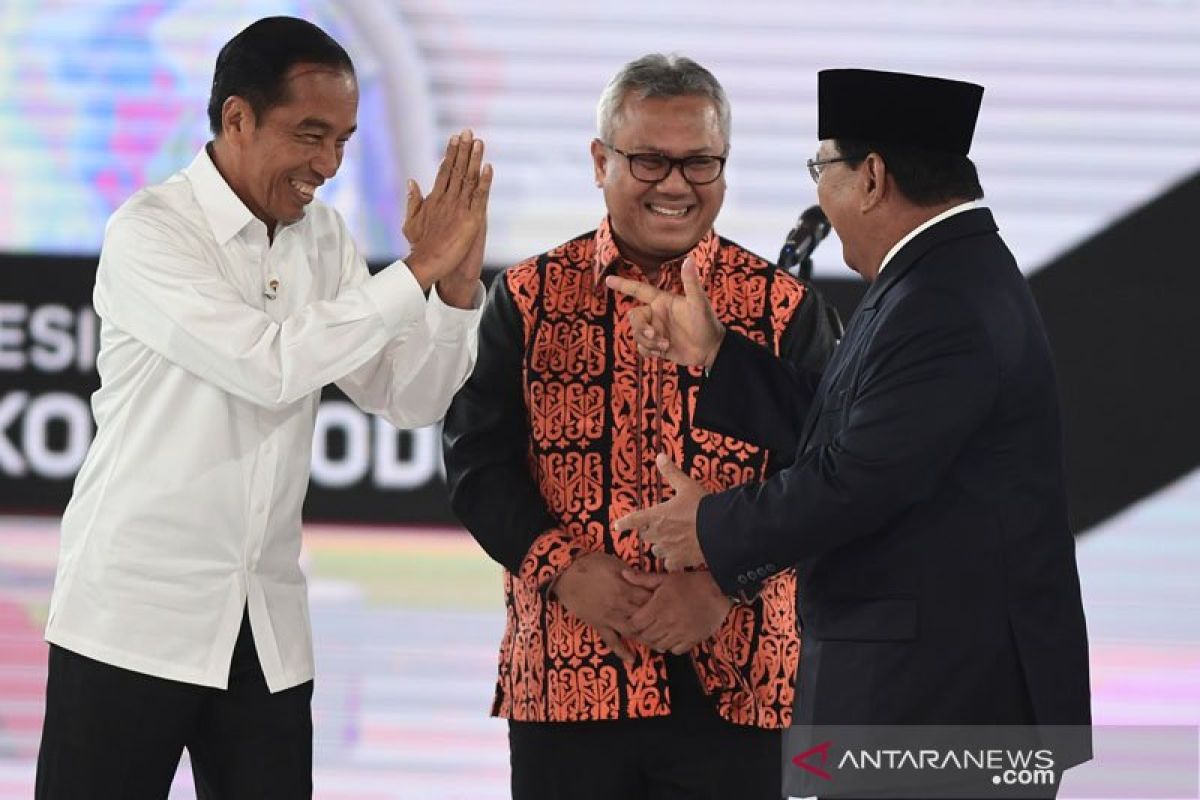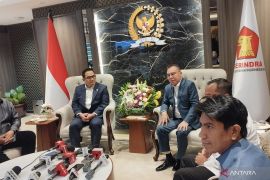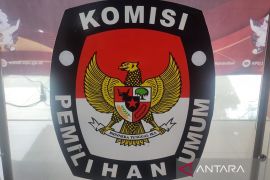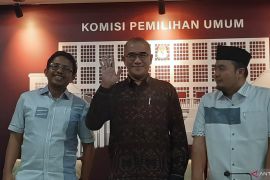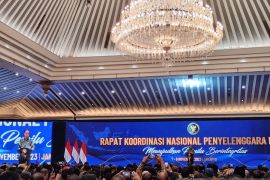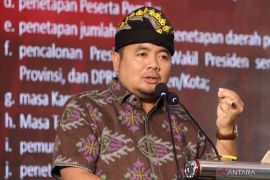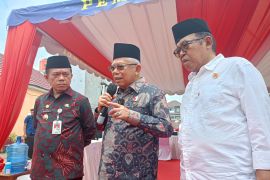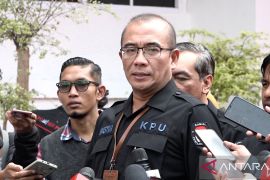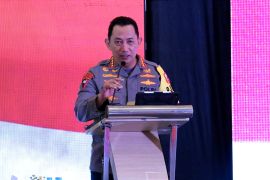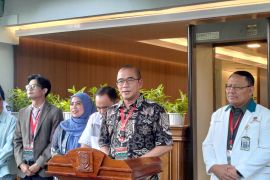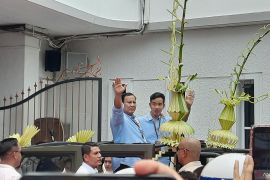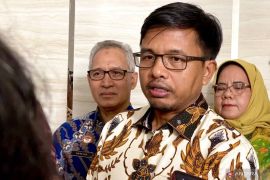The voters have taken their decision on the legislative candidates, who will be representing them at the House of Representatives (DPR), Regional Representatives Council (DPD), as well as provincial and district/city legislative bodies.
Indonesians had also voted for their ideal presidential and vice presidential candidate pair at over 800 thousand polling stations across the archipelagic nation.
Soon after the polling stations shut down, several television stations broadcast the quick count results of various pollsters showing a steady lead for the Joko Widodo-Ma'ruf Amin pair over the Prabowo Subianto-Sandiaga Uno pair.
On the contrary, Coordinator of the Prabowo-Sandi pair's National Winning Body's spokesperson Dahnil Anzar Simanjuntak pointed out that an exit poll conducted by this camp indicated them as having secured 55.4 percent of the votes.
Consequently, on the basis of their own references, Indonesia's presidential rivals have declared election win and have set their sights on the General Elections Commission's (KPU's) real count, the final result for which will be officially declared on May 22, 2019, and is legally binding.
The post-election scenario has appeared overwrought and can potentially swerve towards impacting the country's security and political life.
Indonesia's elite and community members that have, until now, remained divided over differing political choices and tight competition to emerge victorious in the elections must reunite in a bid to prevent any escalation or deterioration of the post-election scenario.
Hence, a nationwide reconciliation appears to be the need of the hour and is in Indonesia's best interests to allay the tensions of both camps that have got embroiled in a stiff competition in the recent democratic exercise.
In spite of the festival of democracy being held peacefully, it has unexpectedly resulted in the deaths of over 500 members of the polling station working committees across Indonesia.
The Prabowo-Sandi camp was quick to point out numerous inconsistencies in the vote data entry appearing in the KPU's vote-count information system (Situng). Speaking in connection with his camp's findings, Presidential candidate number 02 Prabowo Subianto appealed to conduct a forensic audit of the KPU's Information Technology without further delay.
Subianto had also stressed on the need to conduct the forensic audit while conversing with foreign journalists and representatives of the international community and foreign embassies for a dialog to discuss incidents during Indonesia's democratic exercise in Jakarta early this week.
Subianto averred that inconsistencies in the vote data entry in KPU's Situng were the result of "human order" rather than "human error."
Subianto was quoted in a press statement that ANTARA received on Tuesday morning as principally pointing to the apparently structural, systematic, and massive frauds in the 2019 general elections at the event held at his residence on Kertanegara Street no. 4, Selong, Kebayoran Baru, South Jakarta.
"We have been part of a very arduous and strenuous extensive political campaign and elections, and following the conclusion of the elections, we have attempted to engage with the foreign press and community to present our side of the story," Subianto noted in his opening remarks at the meeting.
"In essence, we are attempting to bring to the focus of the world and Indonesia that we have undoubtedly observed a blatant and flagrant violation of the basic norms of democracy in this election," Subianto stated.
Taking into account this uneasy situation, the Association of Indonesian Muslim Intellectuals (ICMI) has emphasized the need to tackle the dissatisfaction of different camps and community members, who felt defeated during the recent parliamentary and presidential elections.
While addressing an event held to break the fast in Jakarta on Thursday, ICMI Chairman Jimly Asshiddiqie appealed to the government and all societal elements to explore ways to tackle this sense of disappointment.
"It takes a long time to overcome this disappointment, and this is the government's obligation," Asshiddiqie remarked.
As a matter of fact, statements made by the political elite targeting one another too may have caused a rift in Indonesian society, he noted, suggesting a procedural approach to tackling this issue, though the wounds would take a long time to heal.
"There is a sense of hatred in our public communication," the former chief justice of Indonesia's Constitutional Court (MK) noted.
Asshiddiqie then spoke of his experience of leading the MK when Susilo Bambang Yudhoyono (SBY) had emerged victorious in the 2004 Presidential Elections.
During that time, SBY had vowed to set up his cabinet before the KPU made an official declaration. Consequently, the MK had held a press conference to draw the public's attention to the inappropriateness of SBY's statement.
"We must strictly adhere to the existent procedures. Following direct communication with SBY, he ultimately concurred with our argument and deferred his declaration on the cabinet line-up," he recalled.
Drawing from personal experience, he vouches for a good communication approach to be followed by supporters of both presidential and vice presidential candidate pairs to help them gain a broader understanding and be more accepting of the existing procedures.
Editor: Sri Haryati
Copyright © ANTARA 2019
